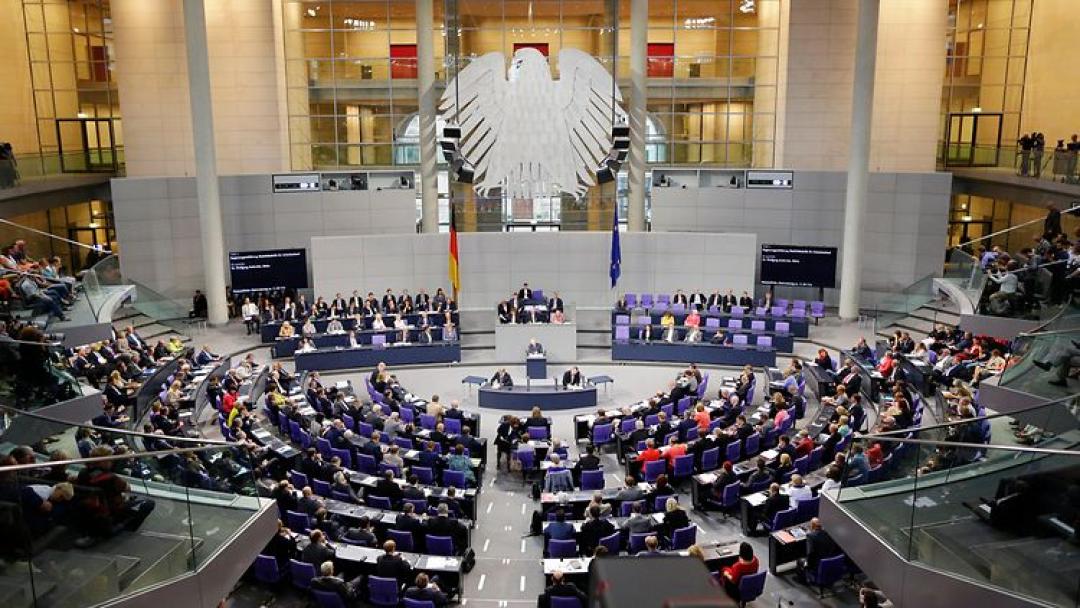
German Bundestag Passes Resolution on Georgia

On October 10, the German Bundestag adopted a resolution titled “A European Future for Georgia,” raising concerns about democratic backsliding under the Georgian Dream (GD) government. The resolution, supported by the SPD, Alliance 90/The Greens, and FDP, highlights the government’s authoritarian tendencies and their impact on Georgia’s EU aspirations, despite widespread public support for European integration. The Union, AfD, and BSW factions voted against the resolution, while The Left abstained.
The document acknowledges Georgia’s progress since the Rose Revolution of 2003, crediting civil society for its dedication to democracy, freedom, and the rule of law. However, it criticizes both the GD and United National Movement (UNM) governments for facing setbacks in their European integration efforts. It specifically condemns the current GD leadership for pursuing an authoritarian direction that jeopardizes Georgia’s European future, contrary to the desires of most Georgians.
Key criticisms in the resolution include controversial laws passed by the GD government, such as the Foreign Agents Law, anti-LGBT legislation, and the so-called “Offshore Law.” It emphasizes the role of GD founder and oligarch Bidzina Ivanishvili, stating that his personal ambition to retain power is being prioritized over Georgia’s democratic stability and its European future. The resolution also highlights the crackdown on civil society, repression of minorities, and the government’s shift away from a pro-European foreign policy.
The Bundestag calls on the German Federal Government to take a range of actions, including:
- Advocating at the European level for a halt in Georgia’s EU accession process as long as the Foreign Agents Law remains in force.
- Urging the Georgian government to withdraw legislation that restricts LGBT+ rights and weakens economic transparency, particularly the anti-LGBT law and the Offshore Law.
- Supporting civil society groups affected by repressive measures through bureaucratic and protective mechanisms.
- Promoting cooperation and cultural exchanges with Georgian civil society while ensuring federal funding is not used to undermine democratic standards.
- Monitoring Georgia’s upcoming parliamentary elections and ensuring they are free and fair through international observation missions from OSCE/ODIHR and PACE.
- Ensuring visa-free travel for Georgian citizens continues, despite the government’s democratic regression, to avoid penalizing the pro-European population.
The resolution also addresses concerns about Russia’s influence in Georgia, calling on the German government to urge Russia to respect Georgia’s territorial integrity and condemn the illegal presence of Russian troops. Additionally, it urges the Georgian government to stop the unlawful persecution of peaceful demonstrators and to uphold democratic standards ahead of the elections. Lastly, the Bundestag calls for targeted sanctions against any violations that threaten Georgia’s democratic processes.
This resolution signals Germany’s commitment to supporting Georgia’s civil society and its European future, while holding the current government accountable for actions that undermine democracy and human rights.
See Also


Russia Begins 24/7 Radiation Monitoring in Dagestan After Iranian Nuclear Incident

How Do Caucasus States React to Israel-Iran War?

Weekly Brief on Military Situation in the South Caucasus (9–15 June 2025)

Former Georgian PM Gakharia to Face Prosecution

